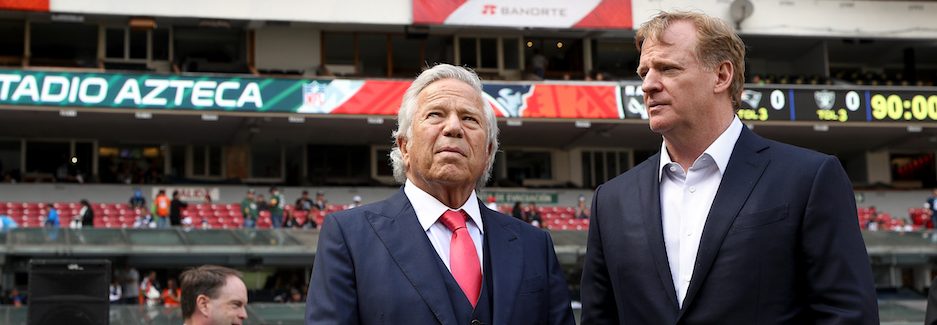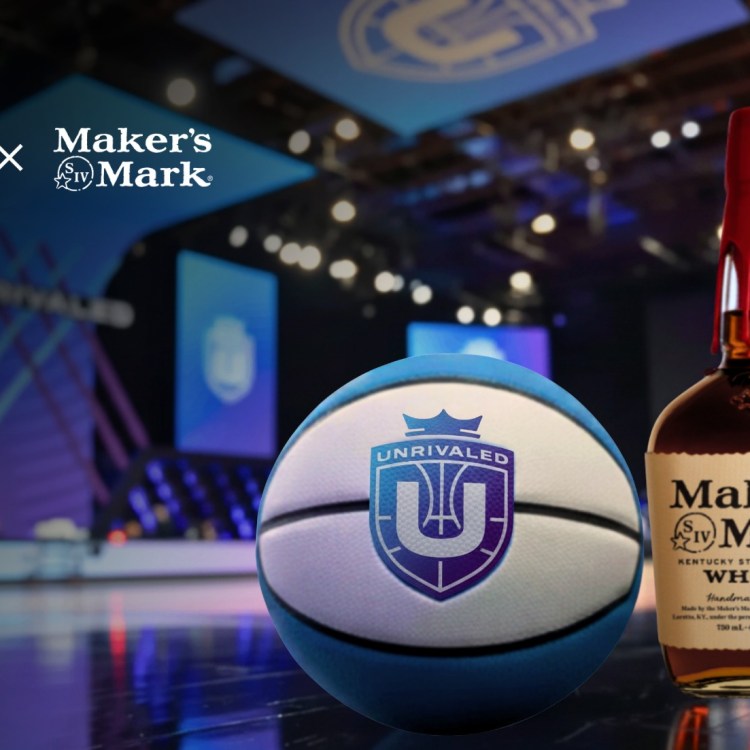On January 18, 2015, New England defeated Indianapolis in the AFC Championship, a game that quickly achieved notoriety due to reports footballs were underinflated. Roughly four months later, NFL Commissioner Roger Goodell gave Tom Brady a four-game suspension for his role in Deflategate.
“The commissioner said it was like taking performance-enhancing drugs,” recalled Duke University Law Professor Paul H. Haagen. (The Co-Director of the Center for Sports Law and Policy, Haagen still considers that analogy “flat-out bizarre.”)
You didn’t have to be Bill Belichick to find it all a bit excessive, particularly since the outcome was never in doubt. (The Pats won 45-7.) Nevertheless Brady began serving his suspension on September 11… of 2016. Meaning, yes, he successfully delayed his punishment for another season, which is roughly half the length of the average NFL career.
Before the suspension was an epic legal battle; afterwards came Super Bowl #5 for Tom Terrific as he showed he was still pretty good even when using balls that had been fully inflated. Neither development reflected particularly well on Goodell’s judgment, but at least one thing seemed certain: it would be a long time before the NFL had to face another court case like that, proving a distraction week after week.
Enter Dallas Cowboy Ezekiel Elliott and allegations—but no actual charges—of domestic abuse. Goodell’s decision to give the star running back a six-game suspension brought everyone back to the courtroom. It also made Dallas owner Jerry Jones deeply, deeply angry, to the point he has threatened to sue the NFL if Goodell gets a new contract.
How is this happening?
“The Commissioner believes that he has both the responsibility and the authority to act in what he regards as the best interest of the league,” Haagen said. Indeed, Goodell seems convinced the NFL’s collective bargaining agreement grants him authority “completely without limits, without any kind of controls.” (It’s not just Goodell who feels this way: Haagen noted that the Second Circuit Court of Appeals ultimately agreed with this interpretation in the Brady case.)
Yet Goodell still has wound up in court more often than Matlock. Why?
There are three primary reasons:
A Problem with Process. You may have noticed that in recent years the NBA has not engaged in epic legal tussles with LeBron nor has MLB with Clayton Kershaw nor the NHL with Sidney Crosby. One reason why: “I think it’s probably not coincidental that all of the commissioners of the major sports league except for one are lawyers.” Yep, Goodell is the non-attorney. The result is a leader who does not “appear to have a really high degree of interest in fidelity to process.” In fact, Goodell often seems to be…
Making It Up As He Goes Along. Haagen has found that Goodell views himself as “not constrained by laws, by rules, and by his past behavior.” The result is leadership that is occasionally “unpredictable,” so that former Giant kicker Josh Brown could be suspended one game for domestic abuse, only to have that suspension abruptly extended by six games. Finally, there’s…
General Sloppiness. The Bountygate incident found Goodell looking to strike a blow for player safety by severely punishing the New Orleans Saints for taking out bounties on opponents. Then former commissioner Paul Tagliabue reviewed it and vacated the player suspensions. Similarly, the Ray Rice domestic abuse investigation displayed a shocking amount of ineptitude. TMZ cracked the case by getting video of the incident while the NFL literally couldn’t be bothered to make a phone call.
The result is that even though U.S. law offers “very, very limited” grounds for challenging the arbitral process, the NFL still conducted itself in such a way that “the players’ union can make a quite credible case, even given how narrow the grounds are.” (At a minimum, Goodell leaves himself open to constant second guessing.)
“You say fans are confused—I think the judges who are looking at it are confused,” Haagen mused.
It should be noted that the NFL Commissioner (and the NFL owners) are in a uniquely powerful position. “The players, they got beaten down this last collective bargaining agreement,” Haagen said. In general, athletes in the other three major sports are better off: “Those players have longer careers. You don’t have quite the culture of disposability that you have in football.” (In particular, the NFL is notorious for non-guaranteed contracts.)
Yet there’s a strong argument the NFL’s need to dominate its players is shortsighted. Compare it to the NBA. “When Adam Silver became commissioner, he was faced with an enormous potential problem in the Donald Sterling case.” After racist recorded remarks by the longtime Clipper owner were revealed, his players were “threatening to boycott playoff games.”
It never came to that, as Silver successfully forced Sterling out as an owner in just four months. (Or about as long as the NFL spent initially investigating Deflategate.)
While quick to note he didn’t want to suggest some kind of “Kumbaya relationship,” Haagen said the players were willing to “back their commissioner in part because their commissioner had a better relationship with them and treats them as partners in the general activity.” This is something that “comes harder to the NFL.”
Haagen added, “I think it’s conceivable the trouble [the NFL’s] having over the kneeling [during the anthem] might convince the Commissioner that he’ll want to have a better relationship with the union and with the players.”
Indeed, Goodell’s poor standing with the players has hurt his relationship with at least a few owners. Beyond his issues with the treatment of Elliott, Jones has been deeply critical of the anthem protests, as has reportedly Washington’s Daniel Snyder. In general, owners want a commissioner who makes controversies go away. Far too often under Goodell, they’ve lingered and grown.
Meaning moving forward we’ll see if Goodell continues to engage in “cramdown” as he imposes rules “without the cooperation of players.” Or will the NFL seek “buy-in” from its athletes? If so, the next time that Goodell (or, if Jerry gets his way, whoever the new NFL commissioner might be) faces a PR crisis and needs the help of the players to solve it, “he’ll have something to call upon.”
The Charge will help you move better, think clearer and stay in the game longer. Subscribe to our wellness newsletter today.

























